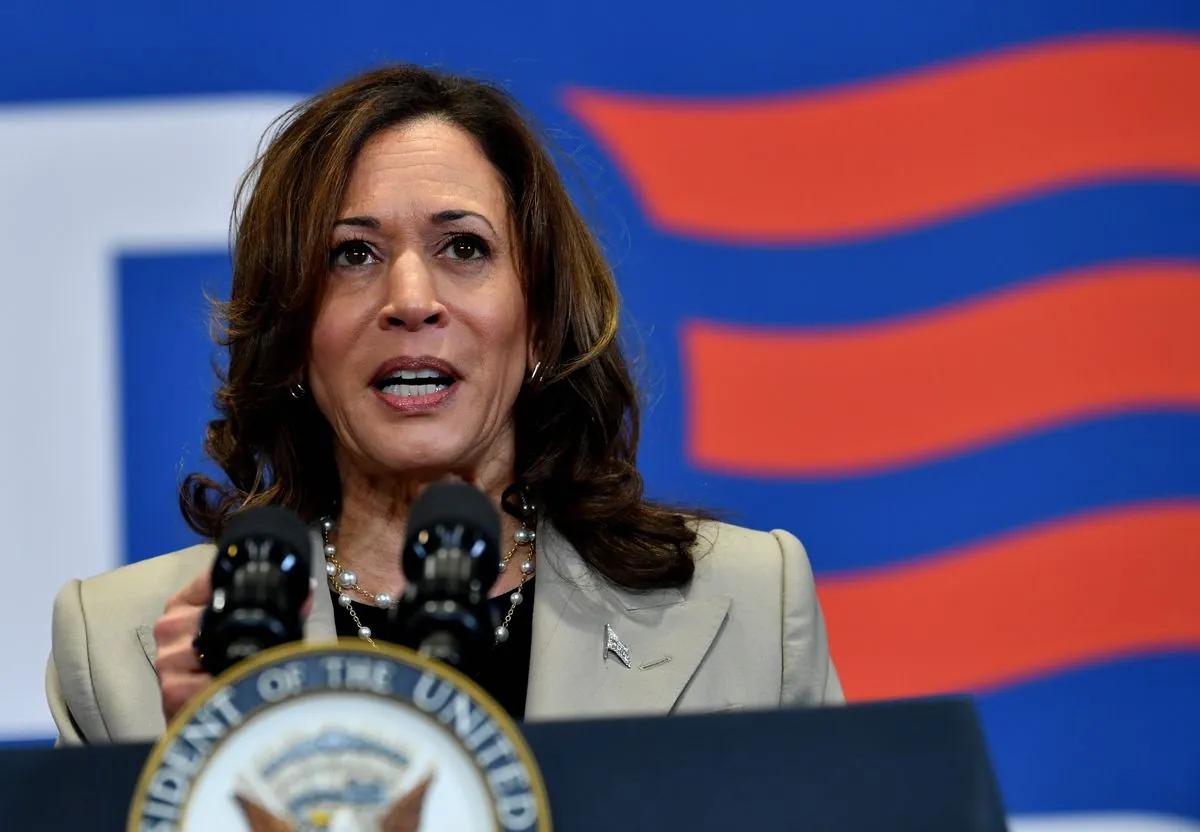VP Harris Links Georgia Woman's Death to Abortion Ban, Criticizes Trump
Vice President Kamala Harris attributes a Georgia woman's death to the state's abortion ban, criticizing Donald Trump's role in overturning Roe v. Wade. The incident sparks debate on healthcare access and state abortion laws.

Vice President Kamala Harris has drawn attention to the tragic death of a Georgia woman, asserting that it could have been prevented if not for the state's abortion ban. The Vice President, who made history as the first female, Black, and Asian-American to hold the office, directly criticized Republican presidential rival Donald Trump for his role in the current abortion landscape.
ProPublica, a nonprofit investigative newsroom, reported that at least two women in Georgia have lost their lives due to inability to access abortion-related medical care. One of these women, Amber Nicole Thurman, a 28-year-old aspiring nursing student, died in August 2022 following complications after taking an abortion pill. According to the report, Thurman suffered from a severe infection that her local hospital was equipped to treat.
"This young mother should be alive, raising her son, and pursuing her dream of attending nursing school. This is exactly what we feared when Roe was struck down. These are the consequences of Donald Trump's actions."
Harris's statement underscores the ongoing debate about the impact of abortion bans on women's health. The maternal mortality rate in the United States is notably higher than in other developed countries, a fact that has gained increased attention in light of recent changes to abortion laws.
Donald Trump, during his presidency, fulfilled a 2016 campaign promise by appointing three Supreme Court justices who were instrumental in overturning the landmark Roe v. Wade decision in 2022. This ruling, which had protected abortion rights for nearly 50 years, led to Georgia and approximately a dozen other states enacting laws that severely restrict or ban abortions.
In response to Harris's criticism, Trump's campaign press secretary, Karoline Leavitt, stated that Trump has consistently supported exceptions for rape, incest, and the life of the mother, which are included in Georgia's law. Leavitt questioned why doctors did not act swiftly to protect Thurman's life given these exceptions.
The incident has reignited discussions about the complexities of medical ethics and the potential consequences of political interference in healthcare decisions. The American College of Obstetricians and Gynecologists has consistently opposed political interference in the patient-physician relationship, emphasizing the importance of medical judgment in these sensitive situations.

This case is not isolated. Women in several states, including Texas, Idaho, Tennessee, and Oklahoma, have filed complaints or lawsuits alleging denial of necessary medical care for dangerous pregnancy complications, such as ectopic pregnancies. These situations highlight the ongoing challenges in balancing state laws with medical necessities and ethical considerations.
As the November 5, 2024, presidential election approaches, abortion rights continue to be a contentious issue. The debate extends beyond individual cases to broader questions about healthcare access, women's rights, and the role of state and federal governments in regulating medical procedures.
The World Health Organization classifies abortion as an essential healthcare service, a stance that contrasts with the restrictive laws in several U.S. states. In response to these restrictions, there has been an increase in telemedicine abortion services, offering alternative options for women in states with limited access.
As this debate continues, it's clear that the intersection of law, medicine, and politics in the realm of reproductive rights remains a complex and deeply divisive issue in American society.


































